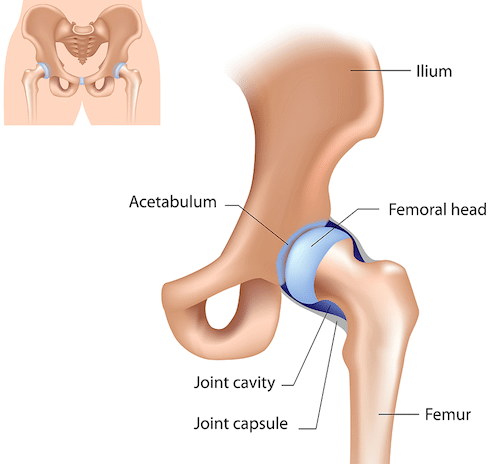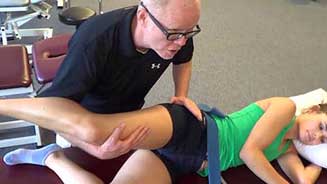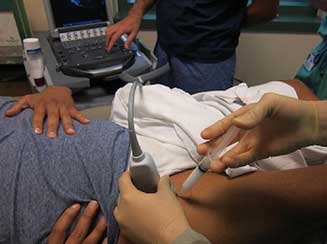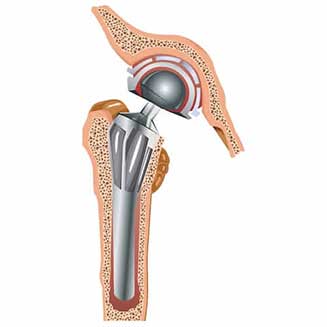Hip Pain
The hip joint
The hip joint is a large ‘ball and socket joint’ and is designed to withstand repeated motion and allow for fluid movement. , Hip pain is a common complaint that can be caused by a wide variety of problems. The most common causes of hip pain are arthritis, bursitis, muscle strain, and nerve irritation. Treatment and management of hip pain is dependent on the diagnosis and any underlying illness that may be present.
Causes of hip pain
- Arthritis: Osteoarthritis, psoriatic arthritis, rheumatoid arthritis septic arthritis
- Injuries: Bursitis, dislocation, hip fracture, labral tear, inguinal hernia, tendinitis sprains and strains
- Referred Pain: Herniated disc, sacroiliitis, sciatica, spinal stenosis
- Other Problems: Avascular Necrosis, Osteomyelitis, Synovitis
Treatment of hip pain
Below are some of the common treatment options that are pursued in the management of hip pain:
Medication management
Over-the-counter pain medications such as acetaminophen (Tylenol), non-steroidal anti-inflammatory drugs (NSAID), such as ibuprofen (Advil, Motrin) or naproxen (Aleve) are often sufficient in managing hip pain. There are also other prescription NSAIDs including Diclofenac, Naprosyn, Celebrex that have been proven to relieve hip pain. Opioids, or narcotic medications may be considered in the management of hip pain, if the pain is severe and if alternative pain management options fail to offer relief.

Physical therapy
Physical therapy is an excellent treatment for managing hip pain. Therapy is directed to maintain the strength and range of motion of the hip through various stretches and strengthening exercises. Other techniques used in physical therapy include ultrasound therapy, heat therapy, and massage.
Joint injections
Depending on the diagnosis, joint injections can be offered to help with pain relief. This is particularly useful in patients who have moderate to severe osteoarthritis of the hip. Arthritis of the hip can present as pain in the groin, and can also be felt in the thigh. Injecting a solution of local anesthetic and steroid can help reduce inflammation caused by arthritis and the results can be instantaneous. These injections are sometimes done under ultrasound guidance. Common side-effects long term seroid use can include weight gain, cartlilage breakdown, and even bone thinning (osteoporosis).




